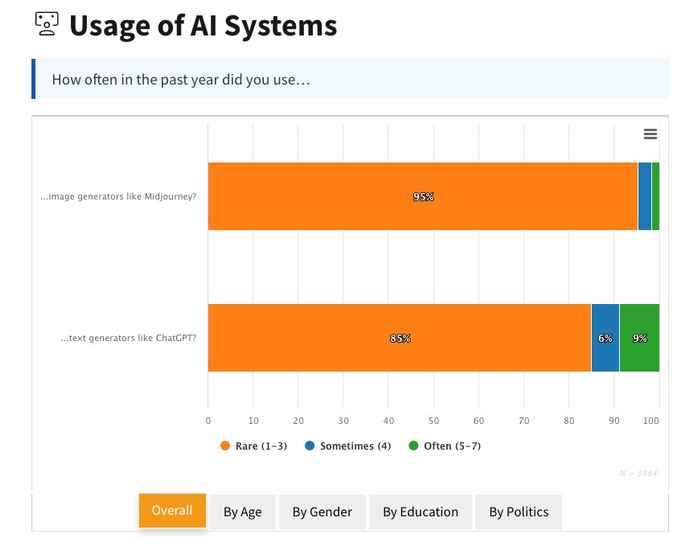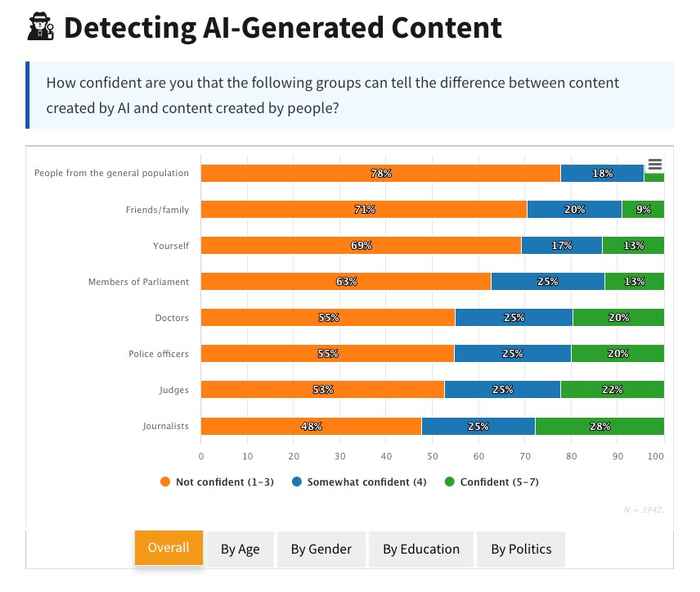70% of Dutch people don’t use generative AI
UvA researchers present the AlgoSoc AI Opinion Monitor
21 May 2024

The AlgoSoc AI Opinion Monitor is the first result of the AlgoSoc research project (see inset). Researchers Ernesto de León, Fabio Votta, Theo Araujo and Claes de Vreese asked almost 4,000 respondents in the Netherlands about developments within AI and will continue to do so over the next three years.
‘The AI Opinion Monitor will help society gain more insight into a topic that is the subject of much debate,’ says postdoc researcher de León. 'Discussions about AI can be complex. For example, people often talk about the dangers of AI, about how it will cause many people to lose their jobs, for example. The media attention for popular chatbots such as ChatGPT and other AI developments is overwhelming. This can create the impression that everyone in the Netherlands is well acquainted with AI and already uses it proactively on a daily basis. Our monitor will allow people to clearly see the actual usage situation in the Netherlands.'
Large age-gap
The first results of the monitor are striking. 70% of respondents overall indicate that they have never used generative AI, such as ChatGPT. But there are large differences between age categories. For example, 74% of young people between the ages of 16 and 24 say they have used generative AI in the past year. For people aged 25 and over, it appears that 74% have never tried to generate text or photo with AI. 'Today's young people grew up with the internet. They have more confidence in experimenting with new technologies in their daily routines. We see this clearly in our monitor,’ says De Vreese, one of the research leaders at AlgoSoc.
Recognizing AI content
Although far from all Dutch people seem to use AI tools, they frequently think that others are using them. Only 15% of respondents say they have never come into contact with AI-generated texts, photos or videos on social media. Almost exactly half indicate that they regularly encounter AI-generated content on the internet. This is unusual, because most respondents do not consider themselves capable of recognising AI-generated content. On a scale of 1 to 7 ranking their own ability to spot AI, the average of the respondents is 2.58. The Monitor suggests people believe journalists are best able to detect AI content.
Ongoing monitoring
‘We will continue to closely monitor public attitudes towards AI over the next three years. If AI is applied more broadly in the future, for example in healthcare or other sectors, we will also be able to map any resulting concerns in the monitor,’ de Léon indicates.
AlgoSoc will interview the same respondents every six months to measure the change in their use and attitudes towards AI and automated decision systems.

